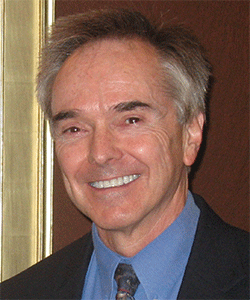Observation
Weisz Honored With Klaus-Grawe-Award
 APS James McKeen Fellow John Weisz, Director of the Laboratory for Youth Mental Health at Harvard University, has been awarded the 2015 Klaus-Grawe-Award for the Advancement of Innovative Research in Clinical Psychology and Psychotherapy by the Klaus Grawe Foundation. First awarded in 2007, the Klaus-Grawe-Award is endowed with € 10,000 and will be presented at the Annual Meeting of the Section of Clinical Psychology and Psychotherapy of the German Association of Psychology in Dresden. Weisz’s distinguished work focuses on improving the mental health of children and teens through testing, implementing, and maintaining evidence-based clinical treatments.
APS James McKeen Fellow John Weisz, Director of the Laboratory for Youth Mental Health at Harvard University, has been awarded the 2015 Klaus-Grawe-Award for the Advancement of Innovative Research in Clinical Psychology and Psychotherapy by the Klaus Grawe Foundation. First awarded in 2007, the Klaus-Grawe-Award is endowed with € 10,000 and will be presented at the Annual Meeting of the Section of Clinical Psychology and Psychotherapy of the German Association of Psychology in Dresden. Weisz’s distinguished work focuses on improving the mental health of children and teens through testing, implementing, and maintaining evidence-based clinical treatments.
Designed to promote “outstanding innovative and interdisciplinary research in clinical psychology and in the prevention and treatment of psychological disorders,” the Klause-Grawe-Award boasts an impressive list of past recipients, including APS Fellows Dianne Chambless, University of Pennsylvania, for her research in evidence-based psychotherapy, Terrie E. Moffitt, Duke University, for her research in gene-environment interaction and mental health, and Timothy J. Strauman, Duke University, for his research in the treatment of depression and self-regulation.
“It is a great honor to receive this award named for Klaus Grawe, a pivotal figure in the history of clinical psychology,” Weisz said. “Professor Grawe promoted the idea — controversial in his time — that psychotherapy should be guided by scientific findings on what works. The foundation that bears his name is renowned for advancing his legacy, supporting rigorous treatment research and evidence-based intervention. So, this recognition carries very special meaning — for me and for my wonderful colleagues and students, whose creativity, scientific integrity, and commitment are reflected in all the work for which this award was given.”




Comments
A well-deserved recognition.
APS regularly opens certain online articles for discussion on our website. Effective February 2021, you must be a logged-in APS member to post comments. By posting a comment, you agree to our Community Guidelines and the display of your profile information, including your name and affiliation. Any opinions, findings, conclusions, or recommendations present in article comments are those of the writers and do not necessarily reflect the views of APS or the article’s author. For more information, please see our Community Guidelines.
Please login with your APS account to comment.